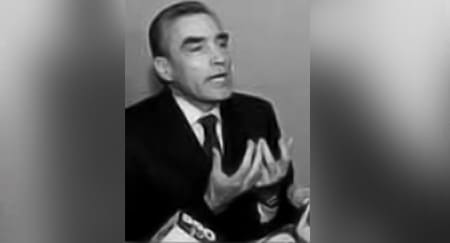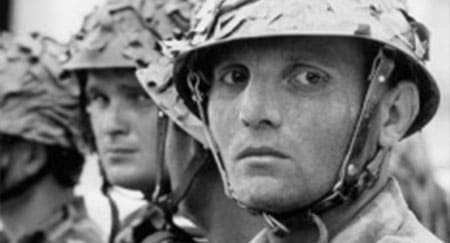Radu Bogdan considers Romanias aspirations to join the European Union and NATO and the reform programme currently underway in his country.
Romanias drive to join European and Euro-Atlantic institutions, which dates back to the 1989 revolution, has begun to bear fruit. Having been admitted to the Council of Europe in 1993, Romania will succeed Austria as Chairman-in-Office of the Organisation for Security and Cooperation in Europe in 2001. But membership of the European Union and NATO, the key promoters and guarantors of development and prosperity in Europe, remain the ultimate goals. Moreover, preparing for possible membership is considered a useful way to modernise Romania itself.
An Association Agreement with the European Union was signed in February 1993 and a membership application submitted in 1995. Last December at their summit in Helsinki, EU leaders invited Romania together with Bulgaria, Latvia, Lithuania, Malta and Slovakia to start accession negotiations in 2000. But the economic challenges facing the country necessitate painful reforms and make it unlikely that the country will be in a position to catch up sufficiently to be admitted in the near future.
Historical poverty combined with communist mismanagement before 1989 and more recent industrial unrest and resistance to reform have left Romania in an economic mess. Gross domestic product has fallen sharply for several years with reductions in both industrial and agricultural output. While there are signs that things are beginning to pick up again, the economy shrank by 4.6 per cent last year and is only expected to recover slightly in 2000. Inflation, though falling, is still more than 40 per cent and official unemployment has doubled since 1996 to 12 per cent. A number of large loss-making industries need privatising or restructuring. Urgent reforms are needed in the financial and banking sector, especially if foreign investment is to be attracted.
Yet, despite fears, Romania has managed to service its international debt and in June of this year the International Monetary Fund (IMF) approved the extension of the deadline on a $535 million loan and the release of a tranche of $116 million. Other multilateral funding depended on the release of this money. The economy should eventually be strengthened by the fiscal discipline imposed by the IMF and by the medium-term economic development strategy that Romania has adopted in the context of its EU accession negotiations. This should also help generate the resources that will be needed to implement the defence reform objectives Romania has set itself as part of its preparations for possible NATO membership.
Romania was the first country to join NATOs Partnership for Peace programme in January 1994. It has always been one of the most active participants in Partnership for Peace exercises and activities, as well as in the political consultation and cooperative initiatives of the Euro-Atlantic Partnership Council. Participation in both is seen as a means to pave the way for NATO membership, as well as to address regional security challenges by extending NATO patterns of cooperation.
Generally, there is broad parliamentary and public support for the countrys NATO membership aspirations. But the full implications of the reforms needed to prepare for possible membership may not yet have sunk in and could eventually meet some resistance. The bipartisan consensus in favour of NATO and its actions suffered from the economic consequences of the Kosovo crisis and, in particular, the blocking of the river Danube. Moreover, some sections of the population opposed the Allied air campaign.
In spite of the political risk, the Romanian government remained firm in its support for the Allies. As Foreign Minister Petre Roman points out: Romania proved its solidarity with NATO by taking risks together with the Allies. It granted NATO unrestricted access to its air space, established new communication channels with the Alliance and allowed NATO troops to transit and NATO air space management equipment to be installed on its territory.
One lesson from the Kosovo crisis is that European security is indivisible and that the new challenges to stability can only be removed or at least contained through common endeavour. The crisis and its aftermath, including the deployment of the NATO-led peacekeeping force, KFOR, have also shown the value of regional security cooperation under the umbrella of the Euro-Atlantic Partnership Council and the Partnership for Peace, and the need to develop its potential. The successful resolution of the crisis would have been more difficult, if not impossible, without the contribution of the countries in the region.
Kosovo-type conflicts would be less likely to arise in a region where Euro-Atlantic patterns of predictable domestic and international behaviour were more firmly entrenched. The question of further NATO enlargement should therefore be addressed as a part of a broader policy to promote stability and democracy in central and southeastern Europe, and beyond. Already, the prospect of Euro-Atlantic integration has helped promote greater democracy and speed up economic reforms in countries aspiring to membership, including Romania. It has also fostered internal and international patterns of cooperation and dialogue in a region too often burdened by long-standing grievances.

Risk-sharing: Petre Roman believes Romania has proved NATO solidarity by taking risks with the Allies. (Reuters photo - 17Kb)
Thanks to NATOs Membership Action Plan, launched at the Washington summit in April 1999, Romania and other countries hoping to join the Alliance now have a road map to help guide them through the preparations for the rights and responsibilities that NATO membership would bring.
The nine participating countries Albania, Bulgaria, Estonia, Latvia, Lithuania, Romania, Slovakia, Slovenia and the former Yugoslav Republic of Macedonia (1) have each submitted an annual national programme on their preparations for possible membership covering political and economic, defence/military, resource, security and legal issues. Each country sets its own objectives, targets and work schedules. NATO follows the progress made, providing political and technical advice.
While participation is not a guarantee of eventual membership, the action plan gives substance to NATOs open door policy and commits the Allies to help aspiring members along the road to that door.
Romania has taken up the challenge with determination. The annual programme of membership preparations is helping to streamline efforts and to set priorities in the allocation of scarce resources. The countrys programme of activities under the Partnership for Peace has also been adapted to feed into this process.
Anational security strategy reflecting the main provisions of the NATO Washington summit documents has been presented to parliament. The implementation of the multiannual core plan for defence reform was approved by parliament in 1999. This two-stage plan calls for restructuring of the armed forces by 2003 and for modernising equipment by 2007. The number of troops is to be reduced from 168 000 to 112 000 by 2003 and the proportion of career soldiers is to rise to 71 per cent from the current 55 per cent. Forces are to be not only significantly smaller, but also more professional and mobile with a high degree of interoperability with NATO forces. High priority is being given to developing rapid reaction forces and capabilities, in particular strategic sea and airlift, and to intensifying cooperation with NATO in air defence.
A critical point has been reached, however, where important but difficult political decisions need to be made concerning the new structure of the defence ministry and the plans to downsize the armed forces. Due care will need to be taken to help mitigate the effects of this restructuring, especially through retraining redundant officers. Consideration is also being given to improving the national crisis management system and to reforming resource management and financial planning in the defence sector.
The first meeting with the North Atlantic Council to assess Romanias progress took place on 6 April. Foreign Minister Roman appreciated the feedback provided by the Allies, which pointed to the need to identify key priorities for greater correlation between available resources and targets, and for better overall coordination between different ministries. Romania may also need to be ready to revise defence spending forecasts downwards, depending on how the economy performs over the coming years. More important, given the difficult and often unpopular choices that lie ahead, is the urgent need for these essential reforms to be perceived as such by all those responsible at the national level.
On the political front, Romania has come a long way since 1989. Significant progress has been made in the practical implementation of democratic principles and in improving the rule of law, respect for human rights and the treatment of ethnic minorities, mainly of Hungarian or Roma origin. Indeed, ethnic Hungarians entered the Romanian gov-ernment in 1996. But more remains to be done, including stepping up the fight against organised crime and corruption.
The country has worked hard to establish good relations with its neighbours. Strategic partnerships have been formed with Hungary and Poland. Trilateral arrangements with Bulgaria and Turkey, Bulgaria and Greece, Ukraine and Moldova have been set up to deal with new chal-lenges and non-conventional threats to security, such as organised crime, international terrorism, illegal immigration and trafficking in arms and drugs.
Active in a host of regional projects and cooperation schemes, as well as the EU-initiated Stability Pact for South Eastern Europe and NATOs South East Europe Initiative, Romanias commitment to peace and stability in the region is further demonstrated by its contribution to the NATO-led peacekeeping forces in the Balkans. An engineering battalion of 200 men and a Multinational Specialised Unit platoon have been deployed to Bosnia and Herzegovina as part of SFOR, and an infantry battalion forms part of the strategic reserve. In November 1999, parliament voted to send 20 policemen and 20 military officers to Kosovo, as well as medical personnel, though the military personnel have yet to be deployed.
NATO has committed itself to reviewing the enlargement process in 2002. In the meantime, there will of course be much debate. Could the Alliance remain functional if it were much further enlarged? How many new members should be invited to join, in what order and how fast?
Then there is the age-old question of how to balance the wish to integrate those countries willing and able to join NATO with that of building a constructive relationship with Russia. Welcoming the recent resumption of the Russia-NATO dialogue in the Permanent Joint Council, Foreign Minister Roman expressed his confidence that: This framework will facilitate Russias understanding of the fact that the enlargement of NATO is directed towards strengthening security and cooperation in Europe and not against a particular country. He also stressed Romanias determination to do whatever it can to help bring this message home to Russia.
Legitimate concerns about the enlargement process will need to be addressed. Recent events, however, demonstrate quite convincingly that, at the beginning of the 21st century, the Alliance needs to do more than simply maintain a stable, secure environment on its own territory. In order to be able to do this, it also needs to project stability outwards into the wider Euro-Atlantic area. Further extending the security umbrella by inviting new members to join NATO provided they meet accession requirements would be an appropriate way to address this need, in keeping with NATOs role as the flagship of a community of nations founded on the principles of democracy, individual liberty and the rule of law.
It is precisely this message that the foreign ministers of the nine applicant countries wished to convey when they met and adopted the Vilnius Declaration on 19 May. By inviting those countries to join based of course on the individual merits of each NATO will become, in the words of Foreign Minister Roman, the long-term investor in European stability and thus decisively contribute to the creation of a free, prosperous and undivided Europe.
Note: Turkey recognises the Republic of Macedonia with its constitutional name.

